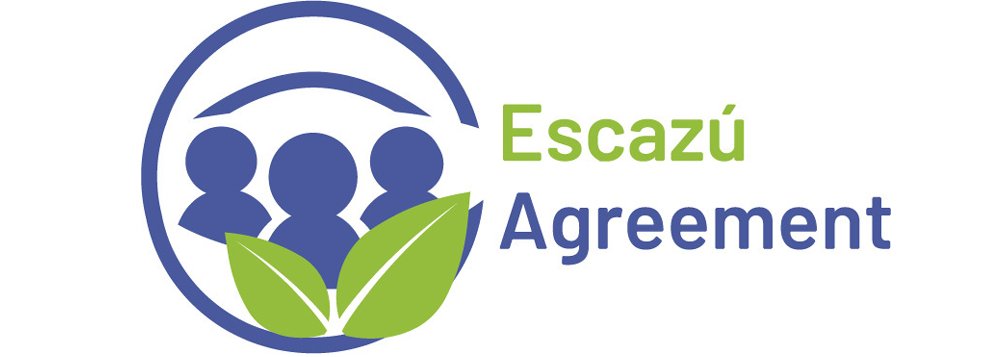by Kristen Ku
BELMOPAN, Thurs. Mar. 23, 2023
Belize made history at the beginning of this month when it ratified the long-awaited Escazú Agreement, becoming the 14th State Party to do so.
This agreement was originally adopted on 4th March 2018, in Escazú, Costa Rica, by the UN Economic Commission for Latin America and the Caribbean (ECLAC), and is aimed at guaranteeing the full and effective implementation of three rights: to access environmental information; for public participation in the environmental decision-making process; and to access justice in environmental matters.
And on March 7, 2023, the Government of Belize officially signed and ratified this important agreement, joining the 13 other countries out of the 33 in the LAC that have recognized its value.
If there is one thing time has shown us, it is the disastrous toll that climate change, pollution, and environmental degradation have taken on our environment, not only in our country, but in our entire region.
Unfortunately, there have been increased attacks upon those who seek to protect the land.
According to an Amandala article in April of last year, “our region has one of the highest incidences of crimes against environmental activists and defenders, with 148 out of the total 202 crimes committed against them in 2019 having occurred in Latin America and the Caribbean.”
And many of the victims of such attacks have been women, indigenous people and African descendants who tend to be at the forefront as human rights defenders in environmental matters.
According to an article by the Pan-Afrikan Reparations Coalition in Europe (PARCOE), “it places citizen action and environmental defenders at the center, recognizes the rights of those who have traditionally been underrepresented, excluded, or marginalized, thus contributing to the fulfillment of the 2023 Agenda and its Sustainable Development Goals.”
The statistics show that over one-third of the attacks against environmental activists and defenders target indigenous people in specific, who constitute about 6% of the global population and safeguard 80% of the world’s remaining biodiversity in Latin America. Similarly, African descendant communities have witnessed the grave effect of recent climate events on their population despite being established in areas rich in natural resources.
The Escazú Agreement recognizes all these issues, reminding the world that to protect the environment, we must first start by protecting the people who defend it, whether in government or non-governmental groups.
As the first provision for human rights defenders in the environmental sector, the Escazú Agreement has been welcomed by many Belizeans and organizations in Belize.
YaYa Marin Coleman, chairperson of the United Black Association for Development Educational Foundation (UEF), an activist and advocate for this agreement, detailed the process taken.
“We were advocating for two things, for the government to ratify the agreement and to raise continuous support. The two hashtags that we used were #bzeescazuagreementuef and #belizeansdahdienvironment to have consistent awareness. We have learned from organizing around Afrikan Emancipation Day: the government has primary responsibility to do these things, but when the government fails and it’s our business we can’t complain and say they aren’t doing it, we have to do it. So, we’re using the same thing again. We’re not waiting on the state; we started advocating for this agreement. I had sent emails to the Department of the Environment, to Foreign Affairs as it relates to this agreement. Most of the time we’ve gotten emails back, but that’s to show that we’re doing the work,” said Marin.
Hon. Valerie Woods, MP (Belize), Speaker of the House of Representatives, a board member of Parliamentarians of Global Action (PGA), and a key figure in the Climate Action Campaign, also expressed how encouraged she feels in hearing the news.
“Belize’s ratification of the Escazú Agreement is an important step towards the recognition, protection, and promotion of the rights of all human rights defenders in environmental matters, in Belize and beyond. With the instrument of ratification deposited one day before International Women’s Day, let us not forget that it is most often women, indigenous, and Afro-descendant peoples who are at the forefront. I am encouraged by this positive step, look forward to effective implementation, and call on fellow parliamentarians in the Caribbean and Latin America to take action toward robust implementation of this unique regional agreement to ensure the full recognition of the universal human right to a clean, healthy, and sustainable environment,” stated Woods.
Earlier in February, the Belize Network of NGOs sent out a press release, in which they hailed the Escazú Agreement as a historic achievement.
“At its core, Escazú is about protecting the people who protect nature. Officially, as phrased by the Secretary General of the United Nations, António Guterres, in November 2022, the Escazú Agreement ‘is the only legally binding agreement derived from the United Nations Conference on Sustainable Development (Rio+20); it is a historic agreement’. That is a big deal. It is, in fact, a historical milestone for civil society participation in the region’s decision-making processes – this type of representation was previously non-existent,” said NGO Senator, Janelle Chanona.
The other 13 countries that have partnered in ratifying the Escazú Agreement include Antigua and Barbuda, Chile, Argentina, Bolivia, Ecuador, Guyana, Mexico, Nicaragua, Panama, Saint Vincent and the Grenadines, Saint Kitts and Nevis, Saint Lucia, and Uruguay.

